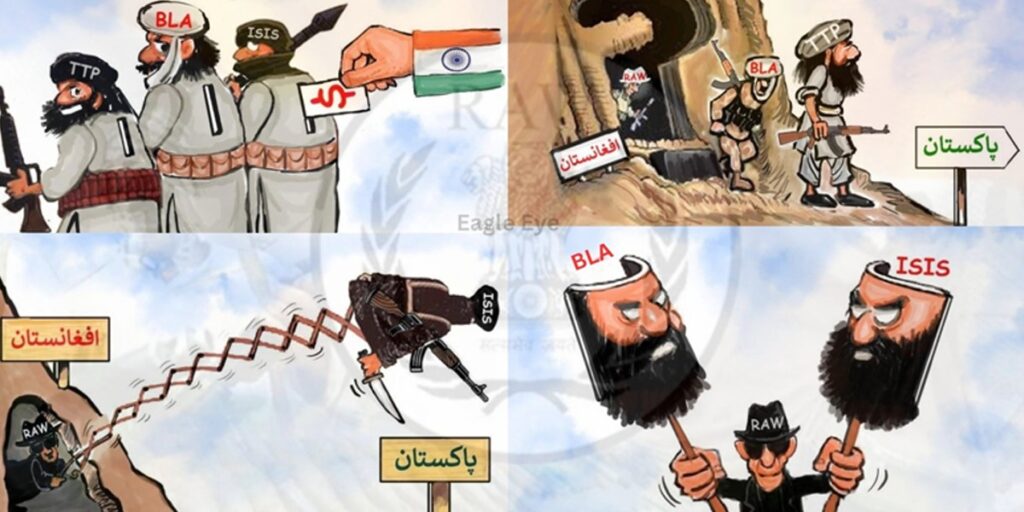QUETTA: The Islamic State Khorasan Province (ISKP) has released a video accusing the BLA of betrayal following the deaths of its fighters in a recent operation. But behind this angry rhetoric lies a more troubling truth is that the video itself implies that there was an understanding between ISKP and BLA.
Experts say it unintentionally reveals a dangerous truth that ISKP and BLA are not bitter enemies but covert allies, operating hand-in-hand to destabilise Pakistan — a nexus sustained by Afghanistan’s permissive environment.
The ISKP’s outburst, laced with condemnation of the BLA, serves a strategic purpose. Rather than signaling ideological discord, the statement is viewed by security analysts as a diversionary tactic — an attempt to mask the operational partnership between these groups. For years, ISKP and BLA have functioned as complementary arms of the same destabilization effort. Their tactics — coordinated attacks, suicide bombings, and media-centric propaganda — exhibit unmistakable signs of strategic synchronization.
Recent clashes, therefore, reflect power struggles and financial competition, not fundamental ideological rifts. These spats are intra-network turf wars, not genuine disavowals.
Afghanistan: The common denominator
At the core of this alliance lies the Afghan sanctuary — a geopolitical vacuum that allows terrorist groups to train, plan, and launch attacks with impunity. ISKP’s statement makes several inadvertent admissions: their presence in Mastung, for instance, could not have been established without BLA’s complicity. This acknowledgment dismantles the illusion of rivalry and exposes the logistics and intelligence-sharing framework that exists between them.
Figures such as General Safiullah Safi are believed to facilitate this cooperation from within Afghan territory, allegedly coordinating fighters for multiple terror entities including FAK, another proxy operating against Pakistan.
Infiltration and proxy warfare
ISKP lacks an independent network inside Pakistan and instead relies on infiltration routes from Afghanistan, operating in tandem with BLA in Balochistan. The porous border and Taliban-linked protection allow ISKP cells to embed with BLA militants, launch coordinated attacks, and escape back across the frontier.
This operational symbiosis is part of a broader proxy war, reportedly driven by Hostile Intelligence Agencies (HIAs) seeking to undermine Pakistan without confrontation. Both ISKP and BLA are instrumentalized as proxies, their activities cloaked in layers of ideological justification but fundamentally rooted in a foreign-directed agenda.
Infighting or power-sharing disputes?
The latest tensions, far from exposing a break, highlight internal disputes over control, funding, and influence within the terror ecosystem. These groups may compete for dominance, but their shared hostility towards Pakistan keeps them bound in a tactical alliance. The ISKP’s accusations against BLA are thus better understood as a strategic performance — a public quarrel to obscure private coordination.
In parallel, Afghan-based propaganda efforts have ramped up narratives alleging ISKP’s presence inside Pakistan. These claims, amplified by certain pro-GDI voices, are designed to deflect attention from Afghanistan’s role as a terror launchpad. The reality, however, is that ISKP and its affiliated Tashkeel (sub-units) infiltrate into Pakistan from Afghan soil, aided by sympathetic elements and territorial permissiveness.
Rather than acknowledging their failure to control terrorism, such propagandists are trying to rewrite the narrative, unfairly blaming Pakistan for a threat it is actively fighting — one that originates across the border.





